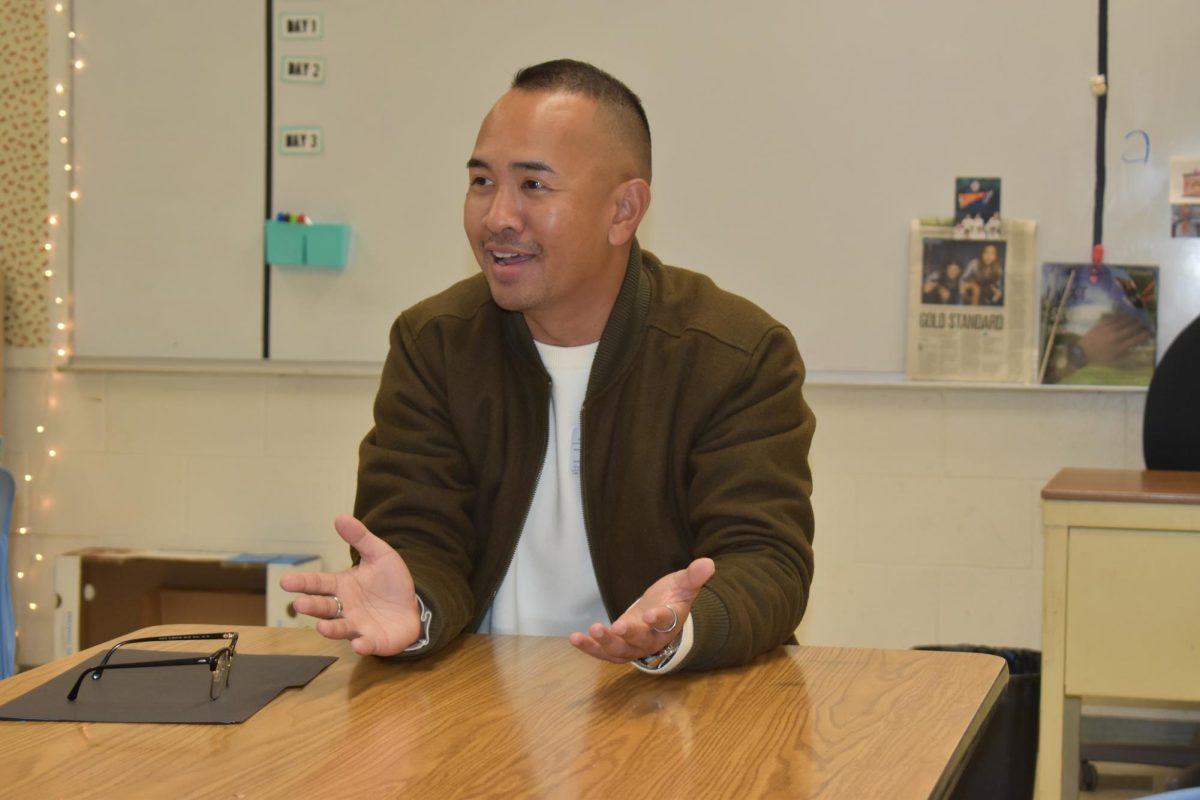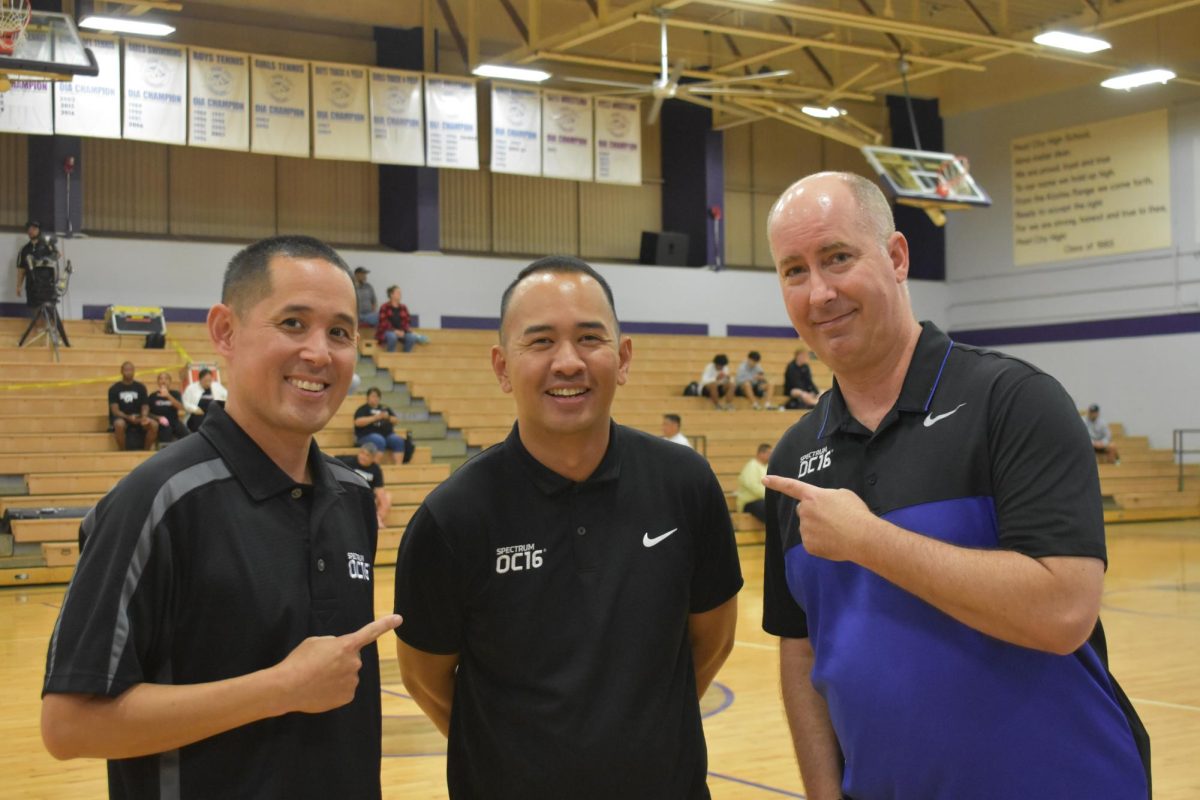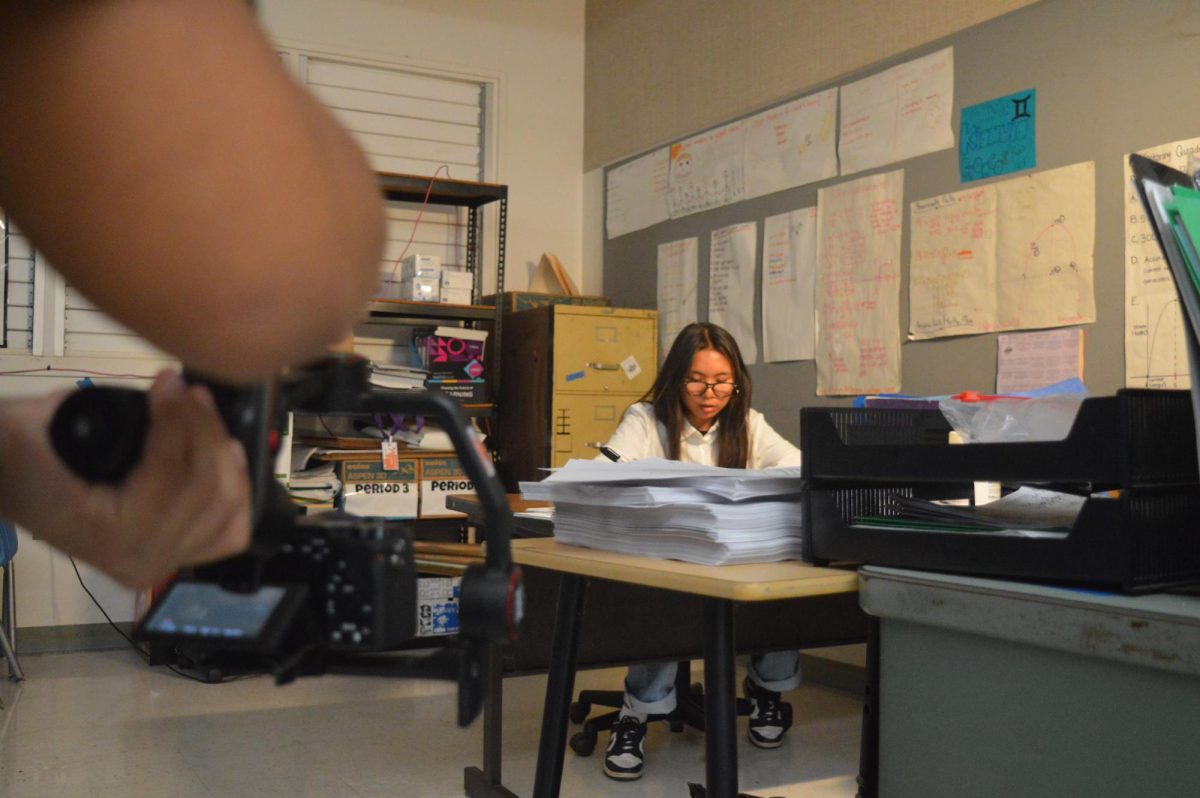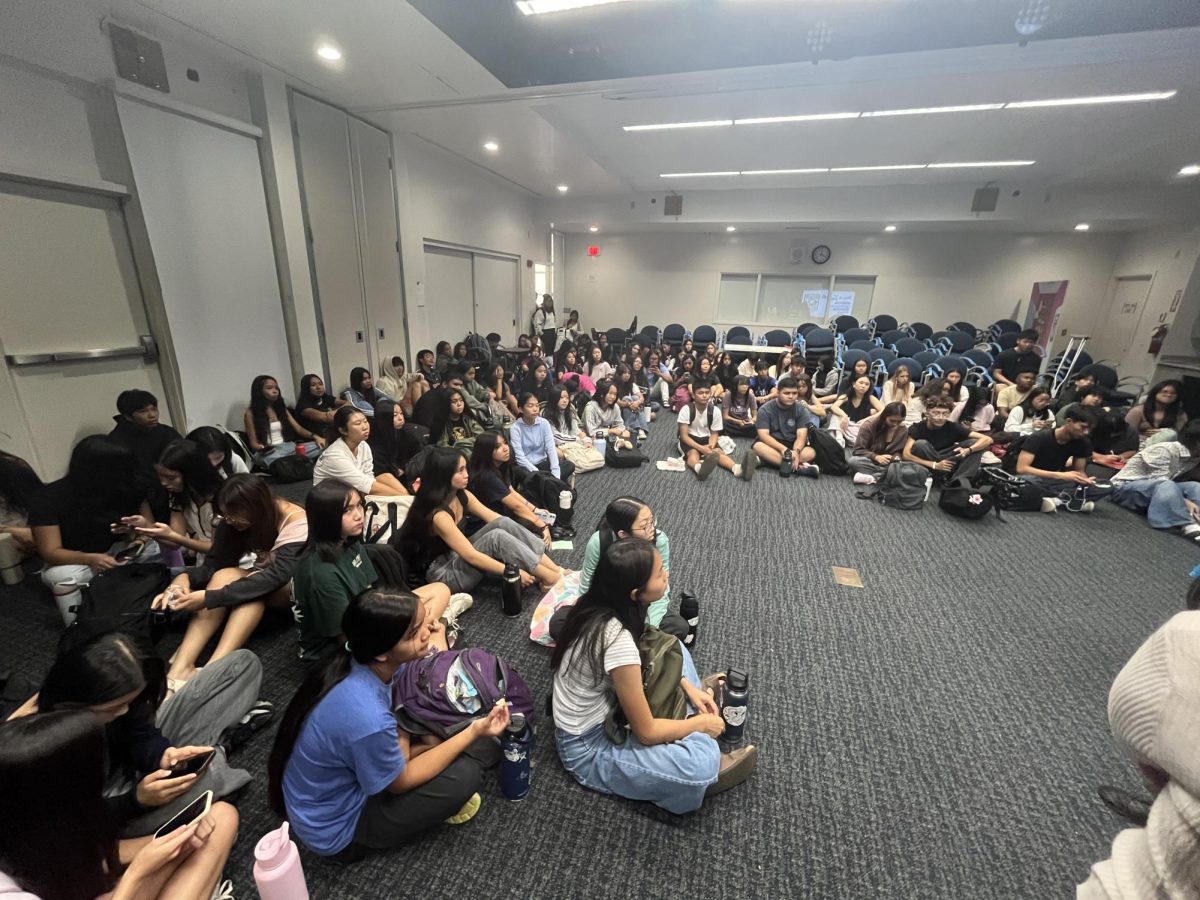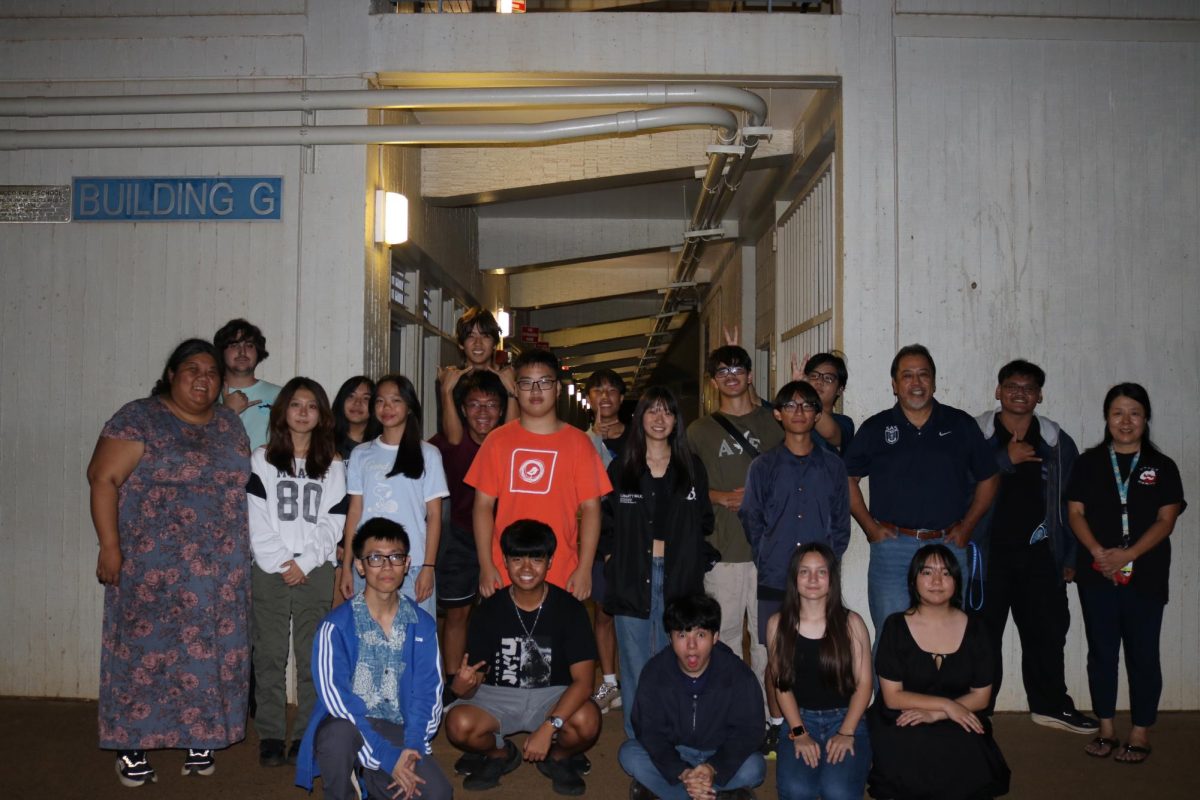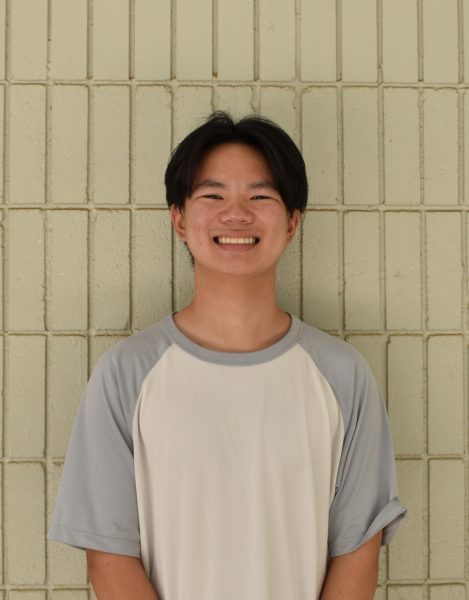For Felipe Ojastro, Lead Play-by-play sports announcer and Spectrum OC16 Sports Producer, one of the greatest achievements of his life came not from a heavy trophy or a flashy medal but rather, it was from hearing the words, “I am proud of you,” for the first time from his father. Ojastro, an alum of Moanalua High School, had just finished calling his first-ever TV game, and while he considered it a decent success, the greater prize was hearing those words of affirmation from someone whom he had looked up to so highly. Growing up in a Filipino household, praise was not always expressed to Ojastro in an outwardly way, however hearing that from his dad gave him confirmation that getting into broadcasting was a viable pathway.
Ojastro’s journey into the announcing space started at Moanalua High School, where his teachers described him as a unique student, someone with extraordinary potential and a kind heart.
“He seemed to me like an old soul trapped in a young body,” science teacher and class of 2006 adviser Theresa Tomimbang said of Ojastro, who was her class president three times (grades 9, 10, and 12).
“He was the kind of guy who brought kitchen cookware to school (rice cooker and all) to make breakfast for his executive council every morning, then complained to me that they never do anything right and they don’t appreciate him…then make breakfast for them the next day.” He was a natural leader because it was very easy to like Felipe. He radiated a sort of energy that was addicting and people just wanted to be around him. He brought people together,” she said.
Throughout his high school career, Ojastro was known for being an actively involved student. He was a leader in student council, part of the drama class, and broadcast media. He emceed just about every school assembly, too.
However, although he was involved with many school activities, there was one that he was not able to be involved in: boy’s basketball. He tried out in both his freshman and sophomore year, but he was cut both times. Yet, what seemed to be a failure was actually a blessing in disguise. If he hadn’t been cut, he might not have spent hours watching games and practicing play-by-play from the sidelines.
“At that time, which I didn’t mind, maybe my athletic career couldn’t be full there, I had asked if I could PA announce the gym games. So I used to announce the JV and Varsity basketball games…[and while watching those games,] I had my phone and I would just practice calling play-by-play. ‘And here’s John right down the middle of the lane, he shoots it…and he scores! And Moanalua’s up two nothing.’ I would record that, I would transfer it to a CD, and then I would burn it to a CD…and I would listen back and to the people who I worked with at the radio station, I would give them the tape, and be like, ‘Hey, can you tell me what you think about this?’ and then they would give me advice and then I would improve,” Ojastro explained.
At the time, already in his senior year, Ojastro had acquired enough credits toward graduation to have half-days, which he used to intern at a couple radio stations. He worked as a board operator where he flipped switches, cued the hosts, and adjusted audio levels, all to gain real-world experience in the industry. It was there that his first opportunity to announce on mainstream radio arose.
“And then when the opportunity arose when I did that for about six months, they were like, ‘Hey, do you wanna announce some of the games on radio?’ So, in fact, my first radio game on the high school side was Moanalua vs. Kahuku football,” he chuckled.
Ojastro studied communications at Kapiolani Community College for a couple years after graduating high school, until he decided to forgo completing his education for a position at Spectrum OC16.
As lead announcer, Ojastro’s job is a busy one. If you don’t hear his voice broadcasting, he is probably interviewing his next subjects, prepping for the next sport he will be covering, or working in the studio. He describes interacting with the athletes and getting to know them as one of the most enjoyable parts of the position.
“By meeting them, you kind of build a connection, a respectful friendship. Thankfully, a lot of athletes trust me with information like some of the adversity that they face. And when you build that connection, it’s kind of a cool feeling,” he said.
Ojastro’s ability to connect with others extends to his coworkers.
“He has that same mentality as me, wanting to do the best, working hard and not afraid of studying what he does,” follow announcer Thomas Yoshida said.
Dean Shimamoto, another analyst, said Ojastro connects with audiences because he is authentic.
“The guy you see on the screen is the guy that he is in person, totally genuine. Sometimes you have fake people, and he is not one of them,” Shimamoto said.
Ojastro’s experience in being in his position for so long has led him to have an efficient routine. In a normal week, Ojastro will call five games per week, and in between the games, he goes to the school practices to talk to the coaches and players. He uses his notes to make a “cheat sheet” with statistics and personal stories that he can then use to fill the time in between plays. His purpose is that by talking to the players and coaches, he is able to give a glimpse of the person to the rest of the audience.
Felipe Ojastro has taken the lessons he learned and applied them to his flourishing career. In his position he got to meet basketball legend Kobe Bryant, cover the Dallas Cowboys pre-season in Hawaii, and of course, take part in University of Hawai’i Athletics. He has even been offered several gigs to cover sports on the mainland, however to that he said, “My heart is in Hawaii, I love home.”
Ojastro attributes much of his success to luck. Luck, however, usually starts with a dream.
Drama teacher Mark Ikenaga recalls that Ojastro was already manifesting a career working for Spectrum while he was in his high school class.
“That year we also did “Cafe Murder,” which is an audience participation murder mystery show and I remember in the [cast biographies in the program], Felipe wrote that one day he hopes to work for OC16 broadcasting live sporting events,” Ikenaga said. “It’s so awesome that I can just turn on the TV and there he is, performing and living his dream.”
Some have asked Ojastro, “When are you going to make it big?” However, to him, there is nothing more fulfilling than covering local sports and local families. His mindset has always been that covering “next game” is the most important one, and he doesn’t have any plans to stop.

